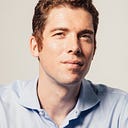Member-only story
Why the 21st Century Will Be Defined by Biology
Neuroscientist Susan Hockfield—the first female president of MIT—on women in science, living batteries, and the coming biotech revolution
 When the neuroscientist Susan Hockfield became the 16th president of the Massachusetts Institute of Technology (MIT) in December 2004, the news made waves—and not just because Hockfield was the first woman to earn the top job. Hockfield was also the first life scientist to run what is the world’s foremost engineering institution. That might have seemed like a set up for a culture clash—biology is the study of life, and life is messy, while engineering strives for mechanical precision.
When the neuroscientist Susan Hockfield became the 16th president of the Massachusetts Institute of Technology (MIT) in December 2004, the news made waves—and not just because Hockfield was the first woman to earn the top job. Hockfield was also the first life scientist to run what is the world’s foremost engineering institution. That might have seemed like a set up for a culture clash—biology is the study of life, and life is messy, while engineering strives for mechanical precision.
But, as Hockfield, who stepped down from her position in 2012, points out, biology has more in common with engineering than you might expect. Just as the physical world is made up of components that can be analyzed and engineered, so is life itself, thanks to the groundbreaking discoveries of molecular biology. And just as our ability to engineer the physical world led to the great innovations of the 20th century, our growing ability to engineer biology opens the door to new inventions that could help us tackle epic challenges like climate change.

